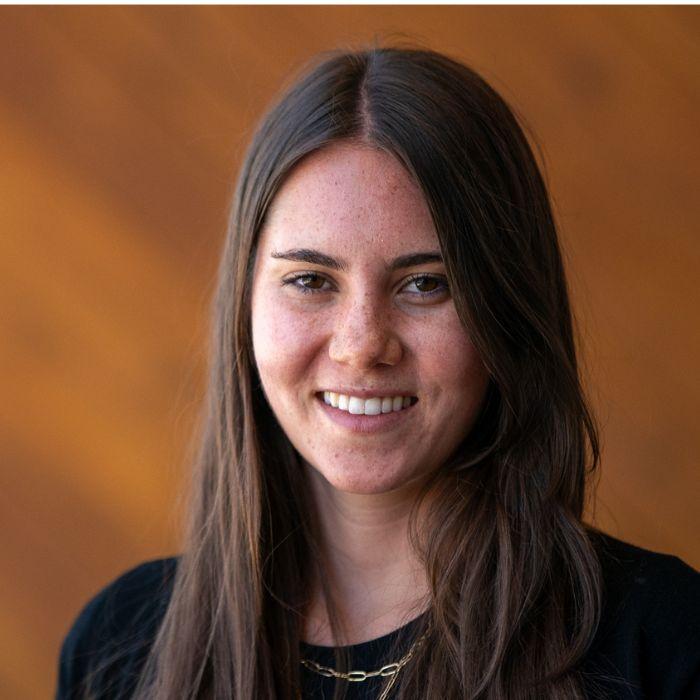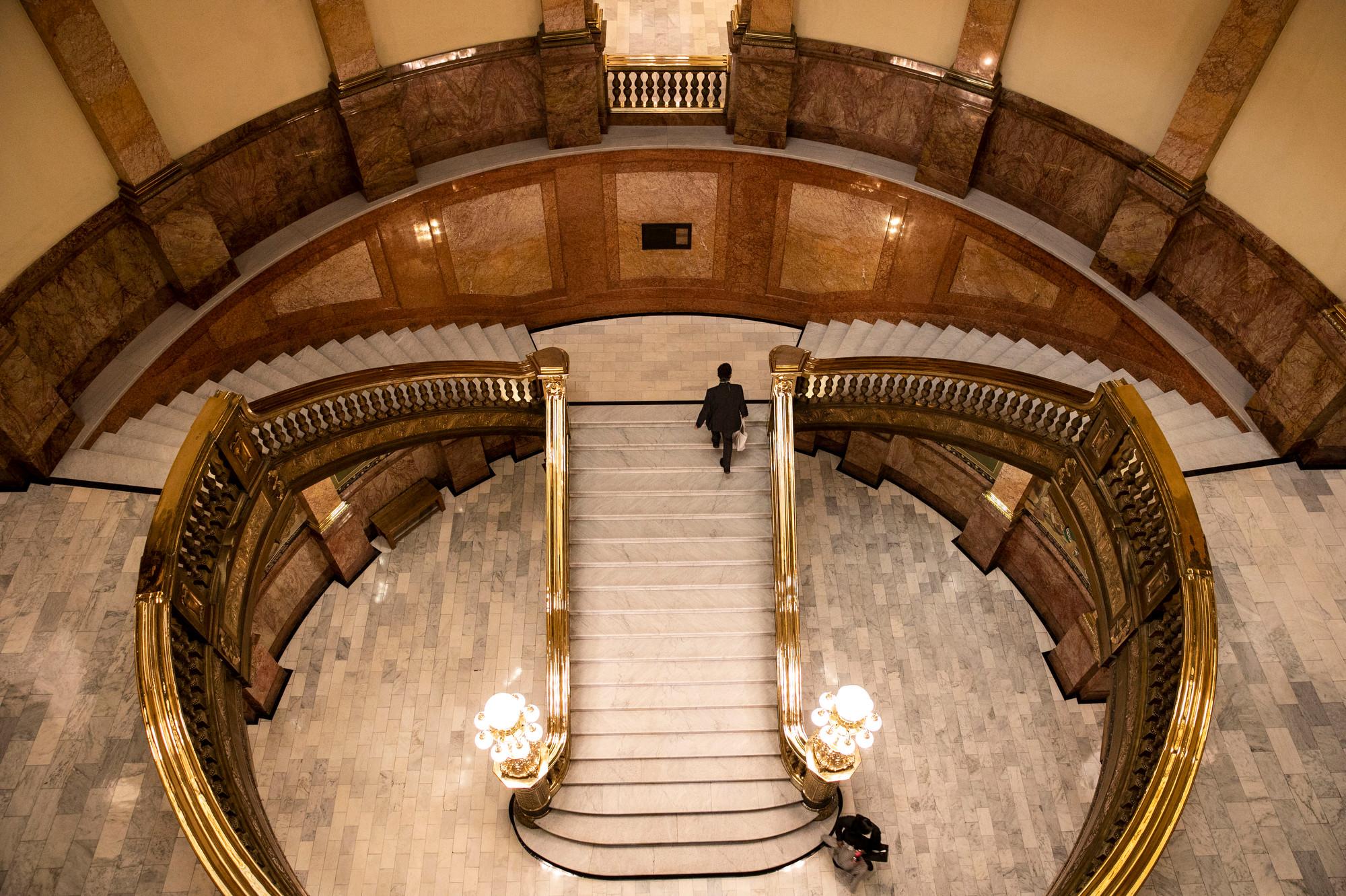
Democrats hold every state office and both chambers of the legislature. But they face one major obstacle for all their biggest plans: the Taxpayer’s Bill of Rights, which has placed strict limits on how the government raises and spends money.
For decades, liberals in this state have argued Colorado is underfunding important priorities — like education and transportation — but they have failed to convince voters to pay higher statewide taxes for those priorities. Now, Democrats are executing a grand new strategy to fund government services and benefits.
“We've already done it. We've essentially already put a dent in TABOR,” said state Sen. Rachel Zenzinger, a former member of the Joint Budget Committee, referring to a series of victories on education funding. And it goes far beyond schools.
Over the last year, Democrats have embraced fees and court rulings to pay for their biggest priorities. Billions in new money for transportation will come from fees on gas and Uber rides. A billion-dollar paid family leave program was approved at the ballot after campaigners embraced a new legal playbook. Businesses and wealthier people will pay more in taxes. Hundreds of millions more will go to local school districts as property taxes are nudged upward.
“Crazy idea — to actually have priorities, and actually pay for them, rather than just squeeze out other things in the budget,” said Carol Hedges, an advocate for progressive tax reform with the Colorado Fiscal Institute.
Political observers have watched with amazement as Democrats have wholeheartedly embraced new ways to raise money. It adds up, in all, to more than $20 billion over the next decade for various state services and programs — some, but not all, enacted without direct voter approval.
Republican leaders say that the financial restrictions of TABOR, which have sometimes seemed like a permanent political reality and a way to contain Democratic power, are unraveling.
“I think TABOR’s hanging on by a thread — but it’s a pretty big thread,” said Michael Fields, a conservative organizer who has fought to place new limits on government spending.
But even as Democrats celebrate these landmark victories, some on the left are worried that parts of this new approach are fundamentally flawed — and their opponents on the right hope that embracing it will be a fatal mistake.
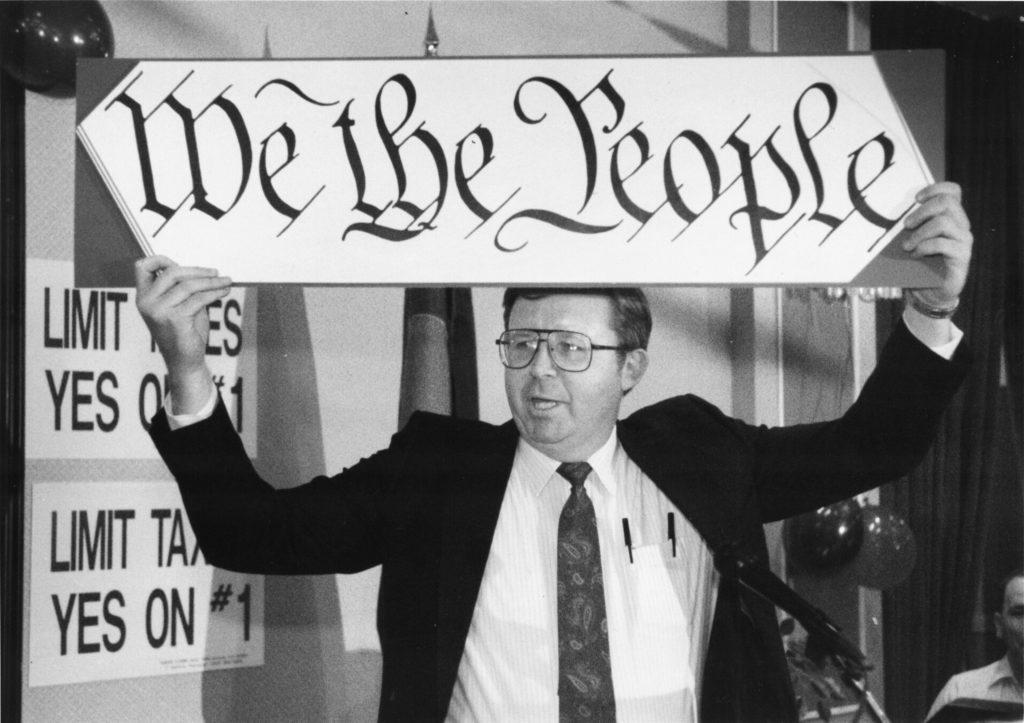
Why can’t they get money the old way?
TABOR has been a part of the state constitution since 1992, when it was approved by voters. It was designed to place strict limits on the growth of government revenues and spending. Most famously, it gives Colorado voters the ultimate power to approve or reject tax increases.
And since then, those voters have never approved increases to the state’s income or sales tax rates.
Ten different statewide tax hikes have failed in Colorado under TABOR, whether they were meant to pay for transportation, education or health care. Only smaller “sin” taxes — on nicotine, cannabis and gambling —have succeeded.
For conservatives, this is proof that the people of Colorado don’t trust the state government with their money, and that they want lawmakers to prioritize their spending instead of busting the budgets.
Democrats over the last year “have been using every legal, legislative gymnastic available … in order to avoid going to the people to vote on taxes, to vote on fees,” said Jesse Mallory, state director of the conservative group Americans for Prosperity.
“Voters have expressed over time and confirmed that they want to be a part of the conversation, to have a role,” he said.
Liberals and progressives argue that those electoral defeats simply show that TABOR creates an impossible situation. It requires tax increases be described in ALL CAPS on voters’ ballots, with the primary emphasis on the millions, or billions, of dollars that each measure will collectively cost taxpayers — leading people to reflexively vote no, they argue.
“We can’t act like this is a neutral playing field — the fact of the matter is that we have a heavily biased system,” said Scott Wasserman, president of the Bell Policy Center. “When you put a sentence at the beginning of a ballot measure — ‘Shall taxes be raised by the largest number you’ve ever seen,’ that is absolutely going to bias voters immediately.”
No matter how you cut it, though, both sides agree: TABOR is entrenched in the constitution for now. In 2019, voters rejected Proposition CC, which was the last big effort to rein in the power of TABOR.
“After that was a watershed moment,” said Wasserman, as policymakers realized that “the traditional ways aren’t working.”

What are they doing instead?
Take this year’s transportation bill as an example.
The fact that Colorado needs more money for roads and transportation seems to have become a canonical fact in Colorado politics. Yet just three years ago, nearly 60 percent of voters rejected a sales tax hike that would have put $6 billion more into transportation.
So, this year, Democrats are taking a completely different approach to raise nearly as much, mostly by collecting a different type of money from people: fees. The money would come from extra costs tacked onto certain activities, such as buying gas or calling an Uber.
That may sound a lot like a sales tax. Legally, it’s not. The most important difference, at least for Colorado politicians, is that fees generally don’t have to be approved by voters.
Courts have found that as long as policymakers manage and spend the money in certain ways, lawmakers can raise large sums of new money from economic activity, and they don’t need direct voter approval. (The question is not legally settled, however, and voters did give themselves more say in the process last year.)
Democrats have already embraced fees on hospitals and insurance companies to fund health care reform, and that approach is accelerating this year.
“Is there a picking up of momentum? Yes. And unfortunately, the court decisions have favored them,” said state Sen. Bob Gardner, a Republican.
Democratic lawmakers say they're using widespread fees as a last resort to finally address crucial needs.
“I don't know if it's the wave of the future, but when you're $9 billion short in transportation funding and literally your roads and bridges are crumbling beneath you, I think it then becomes a necessity,” Zenzinger said
This is not the only area where reformers have pushed fees into new territory for Colorado.
A new paid family leave program will be funded by a fee that every employee and employer pays. The fee is equivalent to a percentage of the person’s paycheck. It’s nearly the exact same thing as an income tax, from the payer’s point of view, except that the funding goes to a specific part of state government and will be spent for a specific purpose.
Fees also avoid another part of TABOR: They don’t count toward the annual “cap” on government revenue, which means the state can freely use them to grow its budget — without worrying about collecting too much money and having to give refunds to voters.
To many Republicans, it all amounts to legal tricks that violate the spirit of the law.
“We started down a road 25 years ago, after TABOR was passed, of ‘government by fee,’” Gardner said. “And now every tax is called a fee.”
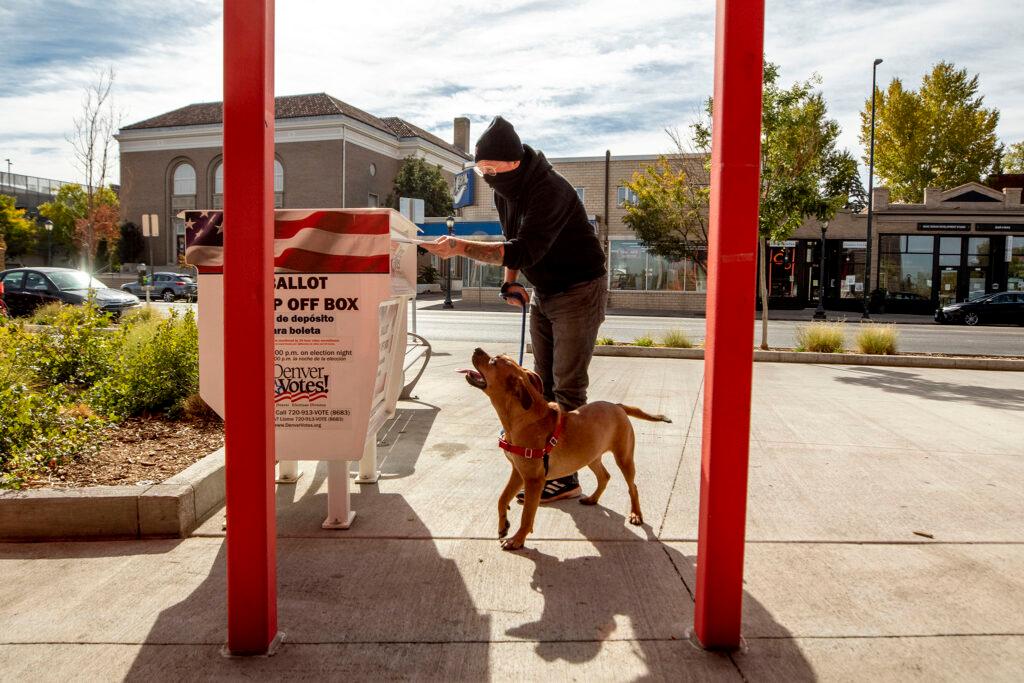
A new strategy at the ballot box
The shift to fees isn’t just happening in the legislature, either.
The paid leave initiative was approved by voters during the 2020 elections. It won 58 percent of the vote — more popular than candidate Joe Biden. A billion-dollar-a-year program, paid for out of people’s paychecks, succeeded where much smaller tax increases for other social programs had failed.
That may have been possible, in part, because of the way the ballot question was written. If it were funded by a tax increase, TABOR would have required the ballot question to focus on its costs to voters. Instead, the text that voters first saw focused on the program’s benefits, which are popular. Only after 160 words of reading would they learn about the roughly 1 percent fee on income.
The measure’s victory proved that not just the legislature, but also well-funded interest groups, could advance their agenda through fees. Whether it’s at the Capitol or on the campaign trail, this legal shift has opened the door for substantial new government spending and benefits.
“All of the things you’re seeing now are ideas that have been percolating for a really long time — that I think were seen as radical approaches,” Wasserman said. “And now you have a lot of interest groups that say, ‘Let’s use that.'”
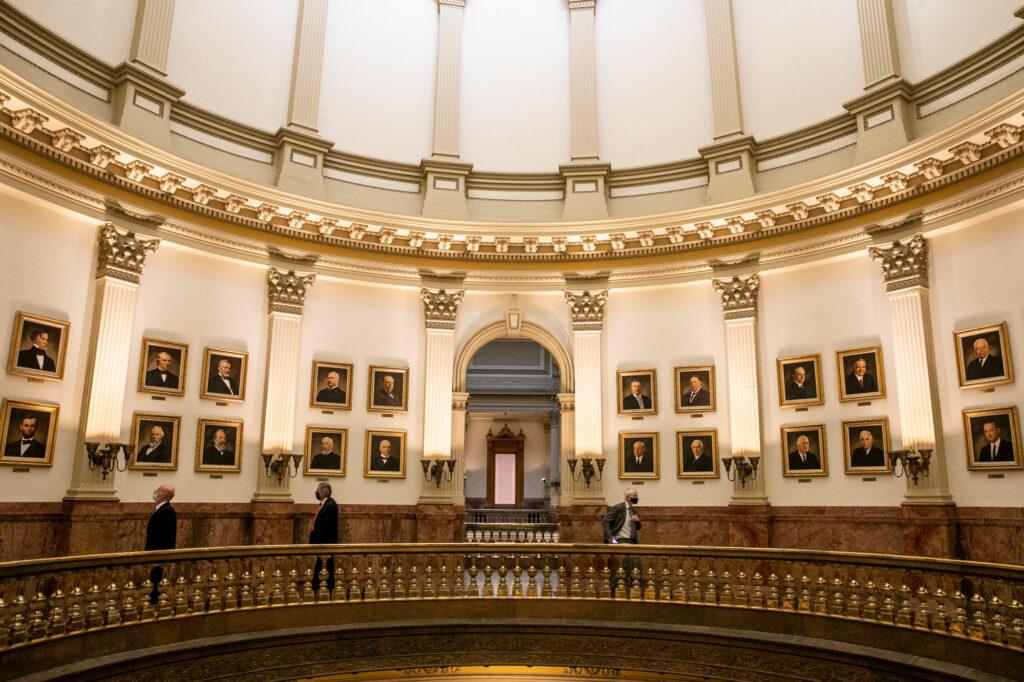
Legal wins and tax code edits
Zenzinger, the Democratic senator, believes that the TABOR amendment will never truly go away — especially the concept that voters get to approve tax hikes.
“I think that that one sacred cow of TABOR — voter approval — will continue, and probably we’ll never get rid of it,” Zenzinger said. “But all the other aspects of TABOR, I think that those are absolutely on the table.”
Besides embracing fees, Democrats in this legislative session are also close to passing the state’s biggest tax reforms in a decade. Two bills would combine to increase tax collections by nearly $400 million per year. But the changes won’t need voter approval, the sponsors say, because they’re not changing the tax rate.
Instead, they’re removing some deductions and incentives, which lawmakers have the power to do on their own. The effect will be that businesses and individuals have fewer ways to whittle down their tax bills — a change that the sponsors say will primarily affect the wealthiest households and large businesses.
“We have focused on closing some exemptions that benefit really small segments of the population, and really the very wealthiest,” said state Rep. Emily Sirota, a sponsor.
As part of this package, lawmakers plan to send about $250 million out to small businesses and lower-income households through credits and exemptions. Families could receive checks of $600 per child, per year — a policy that could help lift people out of poverty and fulfill a longstanding Democratic goal in this state.
Lawmakers have been allowed to make these kinds of changes to the tax code for years, thanks to a previous court ruling. But they’ve never embraced changes on this scale — thanks, in part, to the powerful blowback that hit Democratic Gov. Bill Ritter after he signed a much smaller package in 2010.
“I think the idea of cleaning up the code, making sure that it is doing what it's supposed to do, is much more popular right now,” Hedges said.

A sea change for schools funding
While voters have rejected statewide tax increases, they have approved dozens of local measures to weaken TABOR’s grip. And some of those earlier victories are about to deliver an enormous change for education funding in the state, one that could produce well over a quarter-billion dollars in new property tax revenue annually by 2025.
A bill — sponsored by Zenzinger and others, including Democratic leaders in the House — would force property taxes in more than half of the state’s school districts to rise. Voters in those districts previously approved “floating” property tax rates that could go up or down to meet funding needs, but the state advised them to freeze the rates more than a decade ago, citing concerns about TABOR.
Now, Democrats have secured a state supreme court opinion saying that the rates can be unfrozen, as voters previously requested in these districts.
“This is a simple bill about a complicated issue, but the impact on the ground is profound,” said co-sponsor state Sen. Steve Fenberg, arguing in the Senate chamber that the bill would fix an unfair aspect of school finance.
In every district where voters previously “debruced,” property tax bills would effectively increase by 1 mill — or $100 for every $100,000 of property value — per year, until the district is either paying its share of school funding, or until it has reached 27 mills of school property taxes.
That would mean immediate increases to property tax bills in more than half the state’s school districts, delivering $100 million of new local schools funding in the bill’s first year. Within five years, it could be hundreds of millions more, compared to today. Zenzinger said that funding increase would help to erase the “negative factor,” which represents the amount by which the state has underfunded schools, compared to a formula established by voters.
Critics point out, correctly, that the new bill will result in rising tax obligations for property owners, at a time when many already face increases due to the rapid appreciation of their homes. But Zenzinger argues, also correctly, that these communities have signed off on potentially higher bills — even if it happened decades ago
“In fact, the voter approval had already occurred,” she said.
Fields, the conservative organizer, argues that the change is unfair, since voters have been operating for years on the assumption that their base school tax rate wouldn’t change, no matter what previous elections said.
Democrats covered their bases by asking the state supreme court to rule on the bill’s constitutionality before it even passed. They argued that, since voters had approved these “floating” tax rates, it was actually a violation of the law to keep rates frozen. To Zenzinger, it was a symbol of how Democrats have learned to use TABOR themselves.
“So we fully embraced it. And that actually strengthened our argument for why it was appropriate, and that’s why they ruled the way they did, she said.
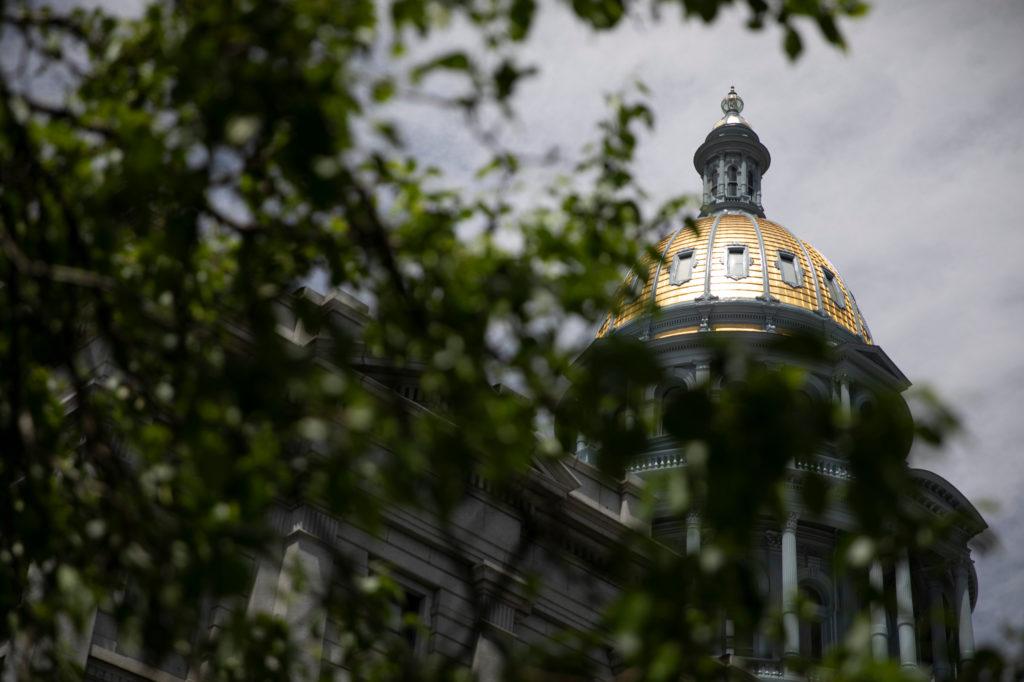
The conservative plan to defend TABOR
For all the ways that TABOR’s grip is loosening, conservatives see an opportunity. They’re hoping that Democrats have over-reached. And they plan to make them pay in the next election.
“Democrats put it into overdrive this session, and the only conclusion is that it’s because they don’t think they’ll be held accountable,” Fields said. “We’re going to educate voters.”
Just as lawmakers are raising new money elsewhere, Fields’ group has been trying to chip away at government revenues with even more ballot measures.
One proposal would strengthen the limitations voters passed last year on the use of fees and enterprises. Fields’ group also is pursuing a statewide ballot initiative that would effectively cut property tax bills by 9 percent.
With property values exploding, that could be a tempting option for voters — especially considering they approved a similar cut to the income tax last November. Wasserman’s allies are fighting back with a bill that would require ballot initiatives to include more information about the services that could be affected by the lost revenue.
At the same time, progressives are looking toward a future battle against TABOR itself.
For them, fees and other workarounds are a temporary and imperfect solution. Fees are generally seen as regressive — since, for example, 2 cents extra for a gallon of gas is more punishing to a person with less money.
For many progressive organizers, the ultimate goal is to get voters to approve a graduated tax system, charging higher rates to wealthier people. But that would require a constitutional amendment and a well-funded campaign, and it’s not clear yet when that might happen. A recent attempt sputtered and failed to make the ballot last year, which organizers blamed on the difficulty of gathering signatures in the pandemic.
“I think for the time being, we’re seeing policymakers be practical and come up with adaptations, but I think everyone in (the Capitol) knows we still have not identified sustainable revenue streams for education, for early child care,” Wasserman said.
In the meantime, both sides agree: In 2022, Democrats will find out what voters think of their temporary solutions. Will they notice higher government costs and rush to defend TABOR? Will they agree to cut taxes in response? Or will they reward Democrats for their ambitious agenda?
Editor's note: This article was corrected to note that Sen. Rachel Zenzinger is a former member of the Joint Budget Committee, not a current member, and that Sen. Bob Gardner is not a member of the JBC.




